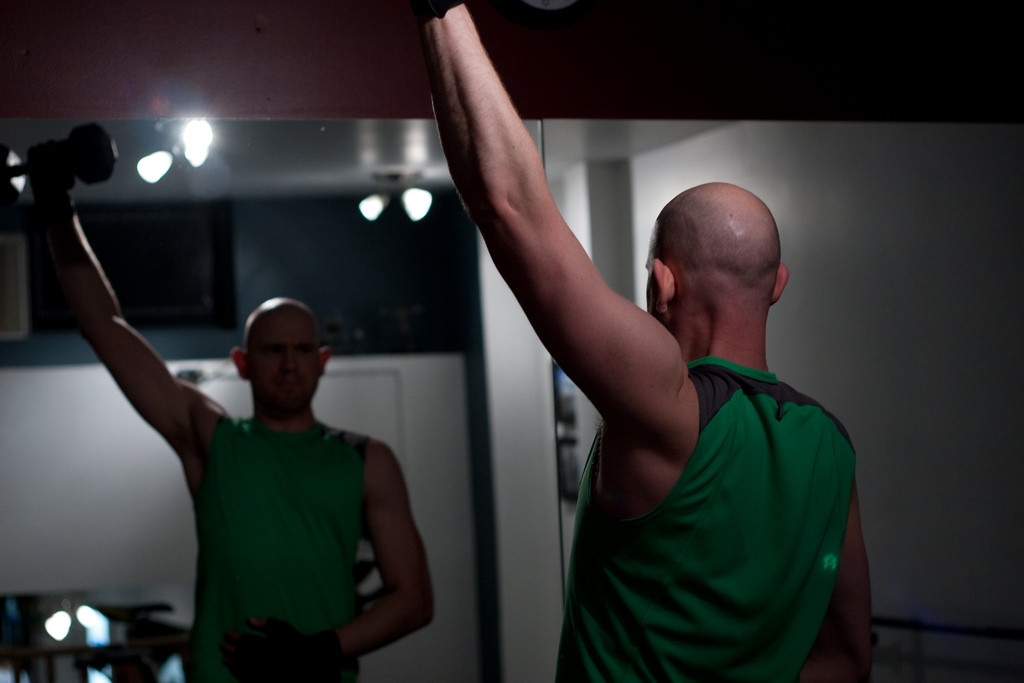
Does Exercise Influence Your Metabolism?

by Phil Hardesty
Photo Credit: Shawn Henning
The connection between exercise and metabolism frequently comes up when people are trying to lose weight. Many people often credit their metabolism with either helping them or preventing them from losing weight. The fact is that no matter the type of metabolism you have, in order to lose weight, it’s necessary to consume less calories or burn more than you consume through exercise.
Including exercise, especially strength training, helps to preserve your resting metabolism
A study published in the International Journal of Obesity found that exercise and activity above a resting level can account for 30-40% of daily total energy expenditure. Of course, this depends on individual genetics and environmental factors such as whether a person eats fast food or lives in a more sedentary culture. But the question remains, does exercise actually causes your resting metabolism to improve?
Aerobic Exercise and Metabolism
A 2003 randomized control study published in JAMA internal medicine found that aerobic exercise does not improve one’s resting metabolism. The study of 131 participants found that the group who exercised did increase the number of calories they burned, but this increase was solely related to the effects of the exercise, not changes in resting metabolism. The study also found that aerobic exercise alone (45min/day X 5 days/week) prevented weight gain in women, yet promoted weight loss in men.
A 2011 study published in the Journal of Medicine & Science in Sports & Exercise comes to a different conclusion. Dr. Knab and her colleagues recruited 10 men, ages 22 to 33, who spent two periods of 24 hours each in a metabolic chamber, a small room that measures the calories people burn while they are inside. The men were not all athletes, but they were able to ride a bike vigorously.
On the first visit to the chamber, the subjects had to stay perfectly still, sitting in a chair and moving only to eat meals, which were sent in through an airlock. In the afternoon, they were permitted a two-minute stretch every hour. Bedtime was 10:30 p.m. At 6:30 the next morning, the subjects were awakened and allowed to leave. They burned, on average, 2,400 calories on this totally sedentary day.
The second visit to the chamber came two days later. Everything was the same, with one exception. At 11 a.m., the subjects rode a stationary bicycle at a high intensity for 45 minutes. According to Dr. Knab, the exercise alone burned 420 calories. Most interesting, however, were the calories reportedly burned afterward. Over the next 14 hours, the men burned an extra 190 calories, increasing the total calories burned by 37 percent over the non-exercise day.
More research will need to be done in larger groups to confirm that aerobic exercise will increase our metabolism throughout the remainder of the day, yet this more recent study appears promising.
Resistance Training and Metabolism
The opposite is the case for strength training. A study published in the journal Obesity found that resistance training helped to maintain a resting metabolism associated with weight loss. This is important because one’s resting metabolism typically decreases when you lose weight by eating less. This study also highlighted aerobic exercise, saying that if aerobic exercise is done repeatedly, it does increase resting energy expenditure in the short term, up to 19 hours, but not in the long term.
So how should this research influence our exercise routine? First, if weight loss is your goal, it means you should take a multifaceted approach. The best results for weight loss come not just from changes in nutrition, but also from including both aerobic and strength training. Including exercise, especially strength training, helps to preserve your resting metabolism in the presence of weight loss.
How has exercise helped you achieve weight loss?
Contributed by
Better Health Begins With You...
Have something to contribute?
-
Reggie February 25, 2016
I understood everything you wrote, this is truly the first time I can say “I get It” . Thank you very much.
Up Next for You


A Tool to Relieve Stress and Improve Your Health






